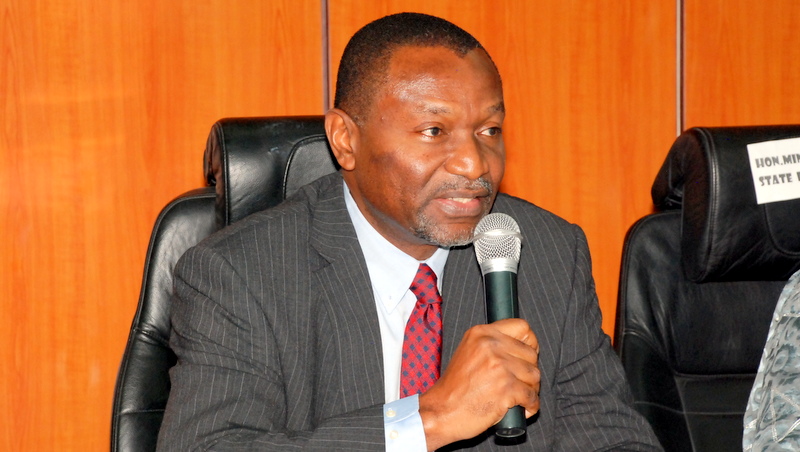The Federal Executive Council on Wednesday approved the Medium Term Expenditure Framework and Fiscal Strategy Paper for 2017 to 2019, thus kick-starting the preparation of the 2017 budget.
The approval was given at a meeting of the council presided over by President Muhammadu Buhari.
The Minister of Budget and National Planning, Senator Udo Udoma; the Minister of Industry, Trade and Investment, Mr. Okechukwu Enelamah; and the Special Adviser to the President on Media and Publicity, Mr. Femi Adesina, briefed State House correspondents about the meeting’s outcome.
Udoma gave the highlights of the approved document to include oil price benchmark of $42.50 for 2017; $45 for 2018; and $50 for 2019.
In terms of oil production, he said the government would retain this year’s 2.2 million barrels per day for 2017; 2.3 million barrels per day for 2018; and 2.4 million barrels per day for 2019.
He added that the government was targeting three per cent growth for 2017; 4.26 per cent for 2018; and 4.04 per cent for 2019.
He explained that the growth rate for 2019 would be slightly lower than 2018 because as an election year, 2019 was expected to come with some uncertainties.
The minister said the government would use N290 to $1 as the exchange rate, with the belief that naira would stabilise.
He said, “As you know, the Fiscal Responsibility Act requires the executive to prepare the MTEF and send it to the National Assembly for their consideration and it is on the basis of the MTEF that the next budget will be fashioned.
“So, in short, we started the process of preparing the 2017 budget.
“Before the MTEF was presented to FEC for consideration, there was an extensive consultation with the private sectors, governors and Non-governmental Organisations.
“In the 2017-2019 MTEFF, the government intends to intensify efforts in pursuing manpower-driven economy. So, we intend to intensify effort to diversify the economy; we intend to go on with the implementation of ongoing reforms in public finance; we intend to enhance the environment for ease of business so as to generate private sector and private investment.
“We intend to continue to pursue gender sensitive, pro-poor and inclusive social intervention schemes similar to what we did in 2016. Our social intervention programmes is going to be sustained.”
When asked why a government that planned to diversify would still be benchmarking oil price, the minister said the government needed to use a particular number to plan in terms of revenue from crude oil.
“We have numbers for everything; we have numbers we expect to get from Customs, VAT, independent revenue. So, we have numbers for all the things we expect, but because oil is volatile and is an area that has caused us to be where we are today, we want to assure Nigerians that we are not going back to using high estimates. Even though we sense that prices may be moving towards $60 per barrel in the next year or so, we are still going to use conservative number,” he said.
Answering a question on the performance of the 2016 budget, Udoma said the government had released over N400bn of capital projects.
He said the government was also up to date in terms of the recurrent, saying all salaries had been paid, overheads released and statutory transfers made.
Enelamah said the council also approved the ratification of the World Trade Organisation’s Trade Facilitation Agreement that was approved by all members of the WTO in the ministerial conference that was held in 2013. The agreement sought to lower the cost of trade, he said.
Th minister added, “There was a clear understanding that everybody benefits from lowering the cost of doing trade. It is particularly beneficial to developing countries that want to be able to access the international market.”


 Naira4 weeks ago
Naira4 weeks ago
 Naira4 weeks ago
Naira4 weeks ago
 Travel3 weeks ago
Travel3 weeks ago
 Jobs4 weeks ago
Jobs4 weeks ago
 Naira3 weeks ago
Naira3 weeks ago
 Naira3 weeks ago
Naira3 weeks ago
 Investment4 weeks ago
Investment4 weeks ago
 Travel4 weeks ago
Travel4 weeks ago



























